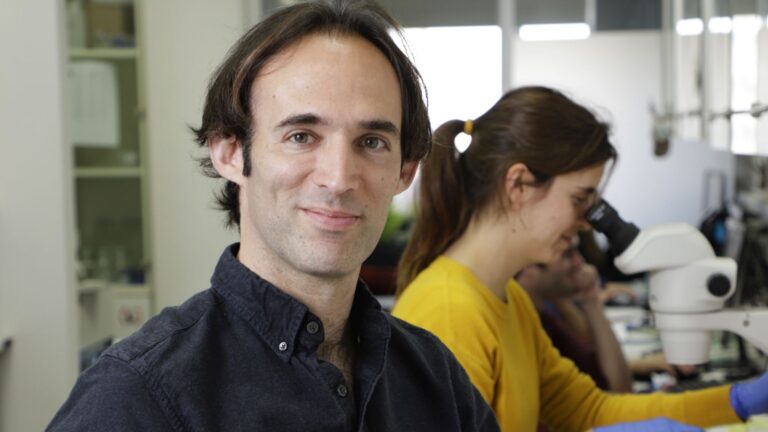Genetics Prof. Ohad Birk and a group of researchers from Ben-Gurion University of the Negev (BGU) and Soroka University Medical Center have discovered genetic mutations that lead to intestinal blockages in newborns from two Bedouin tribes in Israel.
In a paper published in the American Journal of Human Genetics, the scientists reported mutations in gene GUCY2C that abrogate its function. The mutations were identified in two different Bedouin tribes from the Negev where there were instances of intestinal obstructions in newborns without any evidence of Cystic Fibrosis (CF).
“Mutations in the GUCY2C gene might serve to protect against diarrheal infections such as E.coli. Unlike normal laboratory mice that die of severe diarrhea when infected with E.coli bacteria, mice with a GUCY2C mutation do not. Apparently, the mutation might have evolved in the Bedouin to make them more immune to diarrheal diseases and the loss of fluids in their harsh desert clime,” the researchers wrote in a press release from BGU.
Birk — the Head of the Genetics Institute at Soroka University Medical Center and the Head of The Morris Kahn Laboratory of Human Genetics, National Institute for Biotechnology in the Negev (NIBN) at BGU — along with his research group will continue their research to determine whether more subtle changes in this gene control the tendency to diarrhea or constipation in the population at large.
To date, Birk’s research group has discovered the genetic mutations leading to more than 20 diseases in human beings.
Fighting for Israel's truth
We cover what makes life in Israel so special — it's people. A non-profit organization, ISRAEL21c's team of journalists are committed to telling stories that humanize Israelis and show their positive impact on our world. You can bring these stories to life by making a donation of $6/month.









